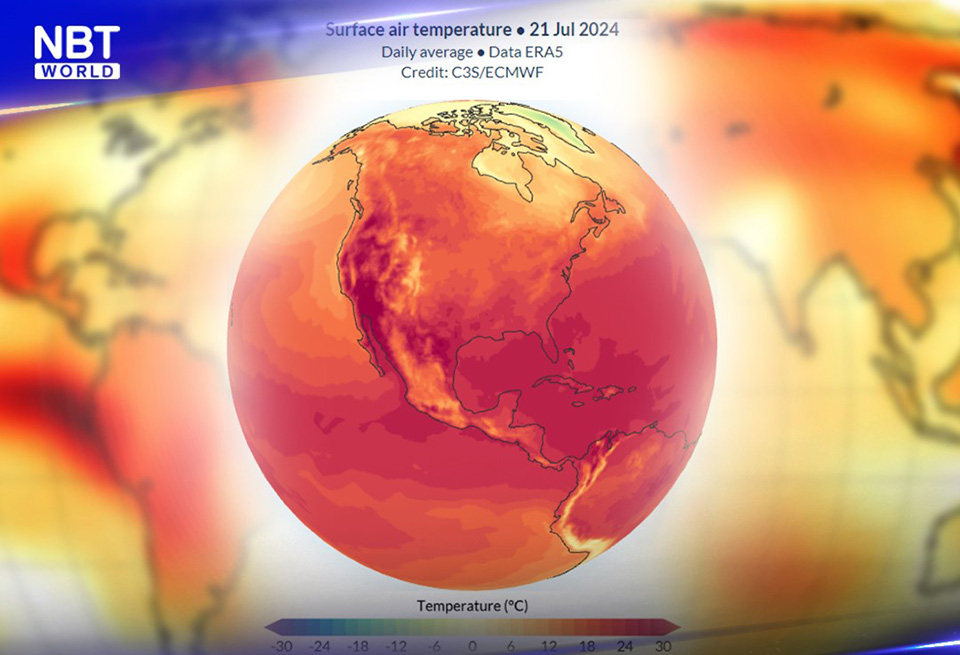
The Earth recorded its hottest-ever global average surface air temperature on Sunday (July 21), reaching 17.09 degrees Celsius (62.76 Fahrenheit), edging past the previous record of 17.08C set last July. The European Union’s Copernicus Climate Change Service released the data as regions across the Mediterranean and beyond grapple with severe heat waves, increasing wildfire risks substantially.
Amidst these conditions, large areas of the United States, Europe, and Russia have experienced scorching temperatures. The extreme heat has fueled numerous wildfires, particularly in Southern Europe, where the mercury has soared above 40C for consecutive weeks. Greece reported 33 wildfires within 24 hours through Monday evening, and despite an anticipated drop in temperature, remains on high alert with forecasts still predicting highs above 39C.
The heat has also intensified in Spain, where cities such as Seville and Córdoba are expected to approach 43C. Southern France and Italy are similarly bracing for elevated fire dangers due to the ongoing high temperatures.
In Northern Europe, both Berlin and Paris are preparing for heat wave conditions early in August, with forecasts suggesting significant deviations from the norm.
The relentless increase in global temperatures has disrupted numerous sectors, impacting everything from air travel to power grids. For the year through June 2024, the average temperature was recorded at 1.64C, higher than the historical average from 1850 to 1900, making last month the hottest June on record and the 13th consecutive month to set a new temperature high.
These persistent high temperatures add to the challenges faced in adhering to the 2015 Paris Agreement, which targets keeping global warming well below 2C above pre-industrial levels and ideally no more than 1.5C. (NNT)








